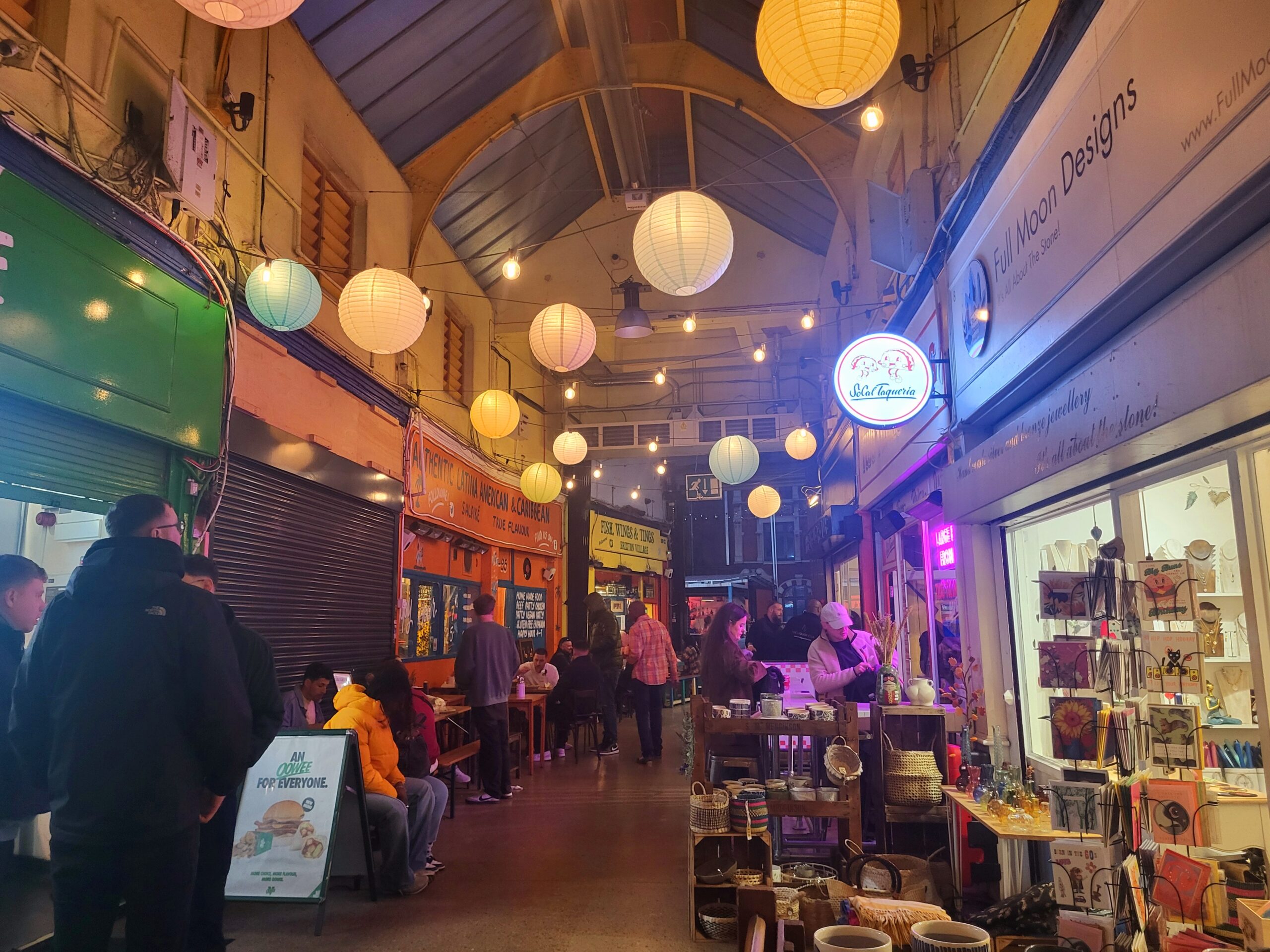On a cool Saturday evening in early March, shoppers browsed London’s Brixton Market as Latin and Caribbean music plays and the smell of jerk chicken and various spices permeates the air. People wade between stalls and shops selling fruits, fish, meats, fabrics, and more. They stop to greet each other as they pass by, exchanging handshakes, hugs, and warm smiles. A woman stops to banter with a shopkeeper about the price of fruit. It’s not just a place to shop but a community center, especially for Black and Brown people in London.
London’s most diverse market, which has been especially significant for African and Caribbean people since they settled there in the 1940s, has faced not-always-welcome change in recent years as costs rise and new developments are proposed, including the sale of the market. Since its humble origins in the 1870s as a collection of outdoor stalls providing produce and goods to residents, the market has had various changes in ownership.
Two American companies, TBG Angelo Gordon and Hondo Enterprises, have owned the market since 2018. When they proposed building a 20-story office tower in the center of Brixton. The community mounted extreme pushback and a #FighttheTower campaign. Residents claimed that the tower would displace them and drive up costs, calling it a modern ‘ethnic cleansing.’ In 2021, the building plans were withdrawn.
In 2024, the market was put up for sale, while there’s no buyer yet there’s uncertainty about what this sale will bring as some locals have taken to social media to express concerns about gentrification and the market being “knocked flat.”
The changes are clear when walking through Brixton Village Market as there are more empty spaces and boarded-up stalls making the loss somewhat palpable.
“There was a time when Brixton was really about community,” said Kat Miles, lifelong Brixton resident and owner of Rachel and Malika’s, a lifestyle and decor shop in Brixton Village Market.
“And it was an absolute hub of creativity, musicians, actors, vocalists, you name it, any version of creativity, there was a human representative.”
Among those forced out because of rising rents last year was Suleiman Oloko, owner of Village News. He was evicted after falling behind on two months’ rent because of time off taken after a stroke in March 2023.
Some shopkeepers have found that the neighborhood’s slow gentrification and the influx of younger people have helped businesses.
“With social media, people see what’s going on and want to see and get a piece of that vibrancy,” said Brian Danclair, owner of Fish, Wings, and Tings and longtime Brixton resident. He believes that gentrification brought a new customer base.
“Brixton Village Market has a unique sort of energy that I suppose has been marinating for such a long time, it’s quite open and there’s good foods, people like that energy,” said Danclair
The market started in 1948, with Caribbean settlers who came off the HMS Windrush. The market flourished as more and more people immigrated from the West Indies and Africa and settled in Brixton.
“There was everything going on down there; there were enough theatres to rival the West End, David Bowie lived across the road, the famous Jamaican singer Alton Elllis owned the best record shop that played reggae music and the community feel was so strong,” said Etta Burrell, who arrived from Jamaica with her family at 9 years old.
“It felt like the market itself had a soul.”
The market’s Caribbean roots still shine through today through the people who frequent it, the shops that exist, and the murals showcasing various Black figures on the walls on either side of one of the market’s entrances.
“It’s like a home away from home for me,” said Danclair, who is from Trinidad. “When you can go right by a vendor and pick up some sort of exotic fruits you were eating as a kid.”
Danclair believes that the community will persevere no matter who the new owner is, “Things have already changed in Brixton Market, prices have gone up a tad bit,” he said. “We just keep focusing on what we have to do and be versatile in how we operate the business.”
